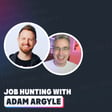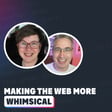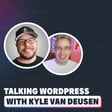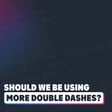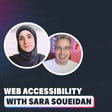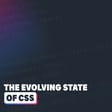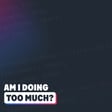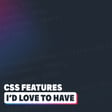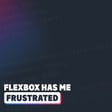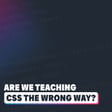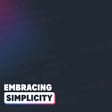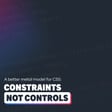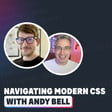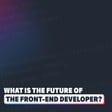
Teaching Front-end, making sense of CSS, and more with Josh Comeau
✅ Josh's blog: https://www.joshwcomeau.com
✅ CSS for JS devs: https://css-for-js.dev/
✅ The Joy of React: https://www.joyofreact.com/
✅ Get the bundle: https://www.joyforjs.com/
✅ Give Josh a follow: https://bsky.app/profile/joshwcomeau.com
In this conversation, Kevin and Josh Comeau delve into the intricacies of front-end development, focusing on the challenges and joys of working with CSS. They discuss the importance of teaching and learning CSS, the frustrations developers face, and the evolving landscape of web technologies, including the impact of AI.
Josh shares insights from his teaching experiences, the philosophy behind his whimsical design choices, and the significance of interactive learning. The conversation also touches on the future of animations in web development and the strategies for keeping up with rapid technological changes.
My primary YouTube channel where I teach frontend development, with a strong focus on CSS: https://youtube.com/@kevinpowell
✉ The written version of my newsletter: https://www.kevinpowell.co/newsletter
💬 Come hang out with other dev's in my Discord Community: https://discord.gg/nTYCvrK
Help support my channel
👨🎓 Get a course: https://www.kevinpowell.co/courses
👕 Buy a shirt: https://teespring.com/stores/making-the-internet-awesome
💖 Support me on Patreon: https://www.patreon.com/kevinpowell

